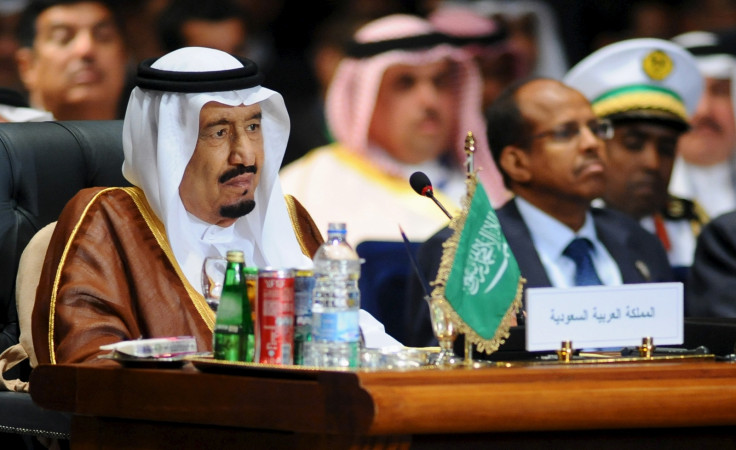Saudi Arabia set to borrow heavily as low oil prices create budget deficits

Having used its foreign currency reserves extensively in 2015, Saudi Arabia is set to borrow more capital from local and international creditors to rectify its budget deficit.
At present, the country faces a deficit of 20% of gross domestic product (GDP) in 2015. The huge gap in the budgetary allocation, which used to have surpluses, comes as its revenues from oil sales have declined substantially due to the prolonged plunge in prices, while it had to spend significant amounts to equip its military against the Islamic State (Isis).
As oil prices slumped from $107 (£69, €98) per barrel in June 2014 to $50 at present, Riyadh had to use its buffers to meet its rising spending. In the past decade, Saudi Arabia's spending was 20% higher than its budget projections.
The country has so far used almost $62bn of its foreign currency reserves in 2015 and borrowed $4bn from local banks in July, issuing its first debt since 2007.
The government revenues are expected to fall by $82bn in 2015, equivalent to 8% of GDP, according to Capital Economics. The International Monetary Fund (IMF) has forecast budget deficits in the country through 2020 amid weak outlook for oil prices.
The oil industry accounts for about half of the economy's output and 80% of the government's revenue.
Saudi Arabia, a prominent member in the oil price cartel the Organisation of the Petroleum Exporting Countries (Opec), is insisting that it would not cut down its oil production, despite the decline in prices. The country wants to keep its share of the global oil market and hopes other high-cost producers including the shale firms in the US would go out of business eventually.
Meanwhile, the country's fight against the Isis in Syria and the intervention in Yemen has spiked its military expense by 17% in 2014. In addition, the government's finances are stretched, as King Salman bin Abdulaziz al Saud announced bonuses for public sector workers after he was crowed king in January.
"We will see increased borrowing in the coming months," Fahad al-Mubarak, the governor of the Saudi Arabian Monetary Agency, had earlier said.
Saudi could issue around $5bn of bonds per month through the end of 2015 to investors, including those from foreign countries, CNN reported, citing analysts.
It may continue drawing on reserves, given a rise in global interest rates. The foreign currency reserves amounted to a whopping $660bn at the end of June, despite increased drawing in recent months.
© Copyright IBTimes 2025. All rights reserved.






















